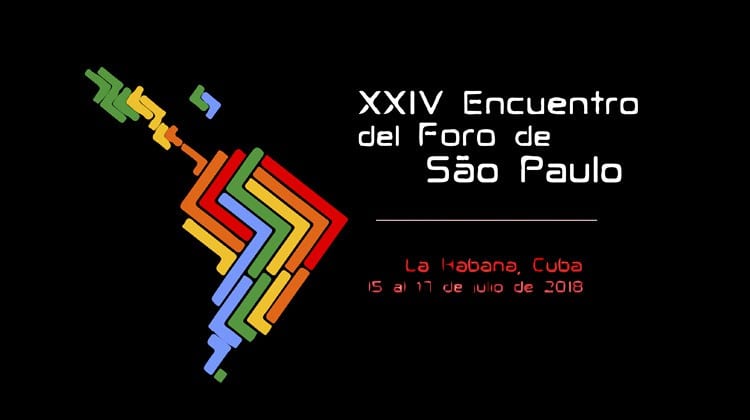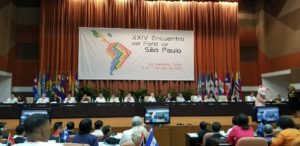
It is worth turning to the history of the emergence of the São Paulo Forum. This discussion platform was created on the initiative of the legendary leader of the Cuban Revolution, Fidel Castro, the founder of the Workers’ Party (Portuguese – Partido dos Trabalhadores, PT), Luiz Inácio Lula da Silva, and other important regional figures in order to promote the collective reflection of progressive movements and parties.
In accordance with the main idea of creating the Forum, the regional inspirers believe that it is called upon to resist the neoliberal offensives in Latin America. The main task of this platform is the destruction and prevention by progressive governments of the consolidation of reforms in favor of any single class. The second and no less important goal is the preservation of the Latin American region as a “zone of peace”, endorsed by CELAC (the Community of Latin American and Caribbean Countries), established in 2011.
Founded in 1990, the São Paulo Forum has become a barometer of regional sentiment, and annually acts as a “beacon” for the Latin American “left”. To date, more than one hundred parties and organizations in Latin America and the Caribbean have interacted within this large-scale discussion platform.
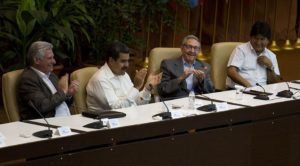
On the 17th of July, the Forum participants adopted the final declaration, in which it was inadmissible and absurd that the United States and the new elite “grown up” by the White House again try to dominate the region. They condemned Washington’s interference in the internal affairs of the sovereign states of the Latin American region and the prosecution of a number of Latin American leaders.
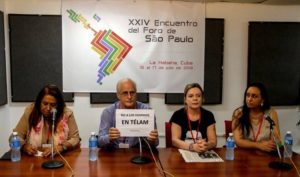
On its first day within the framework of the Forum, a “heated” discussion took place on the position against colonialism in favor of the anti-imperialist doctrine of solidarity and peace. During the meetings of this international event there were meetings of regional secretariats, national leaders, III Seminar of the “left” wing of the São Paulo Forum, the meeting of the “Network of intellectuals in defense of humanity”.
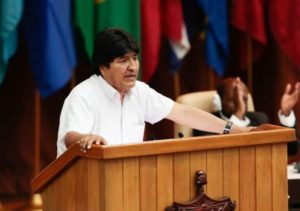
It is worth recalling that during his first presidential term, Morales, who came to power in January of 2006, in 2009 carried out a constitutional reform that prohibits nominations for more than two consecutive terms. The Constitutional Court of the country did not count Morales’s first term as president, and he was able to be re-elected in 2014. The ruling party of Bolivia, “Movimiento al Socialismo” (MAS) intends to re-nominate his candidacy, which will require a repeated referendum or constitutional reform.
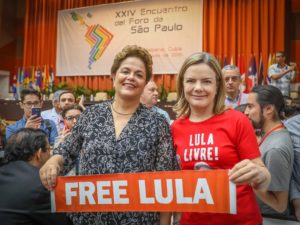
“On the sidelines” of the Forum, the situation in Brazil, as well as the presidential elections in this country, which will be held in October this year, was repeatedly discussed. As delegates of this discussion platform spoke, former President Luiz Inácio Lula da Silva, the founder of the São Paulo Forum, is currently at an “intermediate point” of uncertainty. However, none of the participants doubts that if he gets freedom and is acquitted in a corruption case on charges of which he is in custody he will be able to become the next president of the “South American giant”.
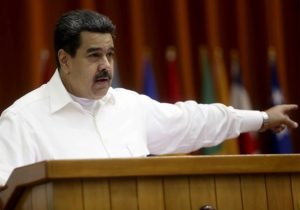
According to the participants, the new meeting of the São Paulo Forum will contribute to the momentum of the revolutionary and progressive forces of Latin America in response to the onslaught of the “right” and the hostility of the US to governments and peoples who oppose their hegemony and interference. Undoubtedly, this discussion platform since its foundation has a clearly expressed ideological orientation. The annual meetings of the Forum emphasize the role of the “left” forces in the unity of the Latin American revolutionary movement. At present, progressive “left” movements are going through difficult times in the entire subcontinent, for this reason the São Paulo Forum is very important for strengthening the unity of the “left” camp in the region.

